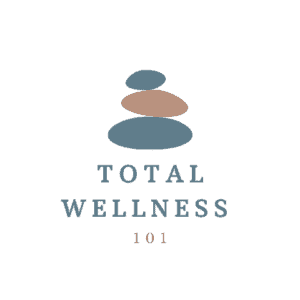Everyone in the field of Psychology knows that gratitude is one of the most beneficial habits that you can form when it comes to your wellness. Being Thanksgiving, I thought I would explore gratitude a little deeper and establish some proven benefits to the fostering of gratitude and some ideas on how to start.
Gratitude and Positive Illusions
There are interesting studies out there that have actually found that depressed individuals exhibit a more realistic view of the world than happy individuals (Baumeister & Bushman, 2017). It is interesting because most would assume that those who are depressed have a distorted view of reality. However, it is actually healthy to exhibit “positive self-illusions”. This essentially means that you see things in your life better than they objectionably are. Healthy individuals will (1) Overestimate their good qualities, (2) have an exaggerated feeling of control of events in their lives, and (3) feel unrealistic optimism about the future (Taylor & Brown, 1988).
So what does this mean to us? It means that part of our happiness is found in consciously seeing the world as better than it may really be. I’m sure you have seen people experience the same thing as another and come out of it very differently. Our realities are subjective and we can shape our happiness by practicing ways to see the world through a more positive lens. And this is where gratitude comes into play.
Gratitude is related to positive self-illusions, however there are slight differences. Self-illusions refer to how one views the world and may involve ignoring reality slightly while focusing more on the positive. On the contrary, gratitude does not seem to involve an illusion of reality, but rather a general appreciation or thankfulness for the good and the bad. Gratitude seems to fit more with Taylor and Brown’s third positive illusion regarding an optimistic attitude. However, both gratitude and positive self-illusions influence happiness, though they may affect it from different angles.
One study demonstrated that gratitude both increased self-esteem and lowered depression. The effect that gratitude had on both factors thus led to decreased suicidal ideation as well (Lin, 2015). Gratitude can also increase happiness and reduce the risk of depression. This may be because grateful people demonstrate appreciation and focus more on positive aspects of their lives (Petrocchi & Couyoumdjian, 2016). This is consistent with the self-serving bias that human beings share in which we tend to identify more with the successes of our lives than with our failures. This protects self-esteem and fosters greater happiness and resilience. Gratitude and positive self-illusions both involve an accentuation of the positive in one’s life. The combination of seeing the world through the positive self-illusions along with developing gratitude can offer a powerful combination to both increase happiness and reduce the risk of depression or unhappiness.
Some Benefits of Gratitude
- You are happier.
- You are more likeable.
- It increases motivation and drive.
- You are a more effective employee.
- Your immune system improves.
- Blood pressure lowers.
- You sleep better.
- Increased optimism.
- You are more likely to exercise.
- Your career will be more successful.
- Gratitude improves your social and romantic relationships.
- It provides a buffer for stressful situations, making you more resilient.
- Your mood stabilizes.
- You are less materialistic.
- Higher self-esteem.
The list goes on and on but these are some of the benefits you will reap from seeing the world in a different light and being more grateful. However, if you are a generally negative person, you can’t just decide to be grateful one day and it will happen. Just like with changing your body, your mind requires constant effort and discipline.

Ideas to Foster Gratitude
Gratitude is like a muscle that you have to train, especially if you haven’t worked it in a while. All of these ideas require a conscious effort to bring gratitude into your life until it becomes a natural thought. And that is when you begin to reap the real benefits. Give some of these a try to start being more grateful:
- Gratitude Journal: This is one of the easiest and most common ways to increase gratitude. It forces you to sit and think about things you are grateful for. It can be different for different people. A common way is picking a number like 5 things you’re grateful for each day for example. It doesn’t have to be an actual journal either. It could just be a note on your phone or whatever works for you.
- Gratitude Jar: When you think of something you’re grateful for or have good things happen, write it on a paper and put it in the jar. When you are feeling sad you can grab one out of the jar to remember the good things in your life.
- Remembrance: It can be a good practice to think back and reflect on how far you have come or the good things that have happened to you. You can also remember the bad things to appreciate the good. This is similar to the gratitude jar but without a physical paper. Just practice recalling the good things you have now when you may be feeling ungrateful or accustomed to your blessings.
- Prayer: For those who are religious, prayer is a common place to express gratitude to God or something greater than yourself. If you pray regularly, try to implement more gratitude and sincere reflection in your prayers.
- Be Present and Mindful: It is hard to be grateful without a connection to the present. Typically if you stop and look around you, you will notice simple things that you have but take for granted. So take a moment every now and then to step back and just look around you.
- Use Visual Reminders: You may benefit from placing visual reminders in your path that prompt you to be grateful. This could be a sticky note on your fridge, a reminder on your phone, a calendar, etc.
- Watch Negative Thoughts and Words: Try to combat the bad habit of complaining either in your thoughts or in your conversations. The more you entertain this negativity, the more you will see it in your life. If you are looking for something to complain about, you will find plenty. However, if you are looking for something to be grateful for, you can find plenty as well. You might as well see the good. It feels a lot better to be grateful than to be ungrateful.
- Fake it Till You Make it: The James-Lang Theory of emotion proposes that emotion follows the bodily sensation associated with them. For example, you don’t smile because you’re happy, you’re happy because you smiled. Trying to act out how you want to feel before you really feel it is another tactic to make gratitude a habit. Smile more. Talk about how great work is even if there were some negative things you’d rather complain about. Act like a grateful person and you will find that you will start to actually feel more grateful.
Final Thoughts
So many of us are waiting to achieve something or arrive at some place so that we can finally be happy. When we think about why we actually want these things, it is really because of the feelings we believe we will get by having them. So if all we are really searching for is a feeling of contentment, we can have that now just by being grateful. I truly believe it is the key to happiness and that anyone can achieve it no matter your circumstances. You can have everything and be miserable or have nothing and be the happiest person on earth. It all has to do with what you decide to see. So make an effort to see the good because there is plenty when you really look for it. Happy Thanksgiving!
References
Baumeister, R. F., & Bushman, B. J. (2017). Social Psychology and Human Nature (4th ed.). Boston, MA: Cengage Learning.
Lin, C. (2015). The relationships among gratitude, self-esteem, depression, and suicidal ideation among undergraduate students. Scandinavian Journal of Psychology, 56(6), 700-707. doi:10.1111/sjop.12252
Petrocchi, N., & Couyoumdjian, A. (2016). The impact of gratitude on depression and anxiety: The mediating role of criticizing, attacking, and reassuring the self. Self and Identity, 15(2), 191-205. doi:10.1080/15298868.2015.1095794
Taylor, S. E., & Brown, J. D. (1988). Illusion and well-being: A social psychological perspective on mental health. Psychological Bulletin, 103(2), 193-210. doi:10.1037/0033-2909.103.2.193
Recent Posts
In the pursuit of professional success, the modern working professional often finds solace in a cup of coffee or energy drink. Caffeine, the world's most widely consumed psychoactive substance, has...
Strategies for Sales Professionals to Reduce Back Pain and Injuries
In the fast-paced world of sales, professionals often find themselves navigating through long hours, client meetings, and constant travel. Amidst the pursuit of closing deals and meeting targets, the...

